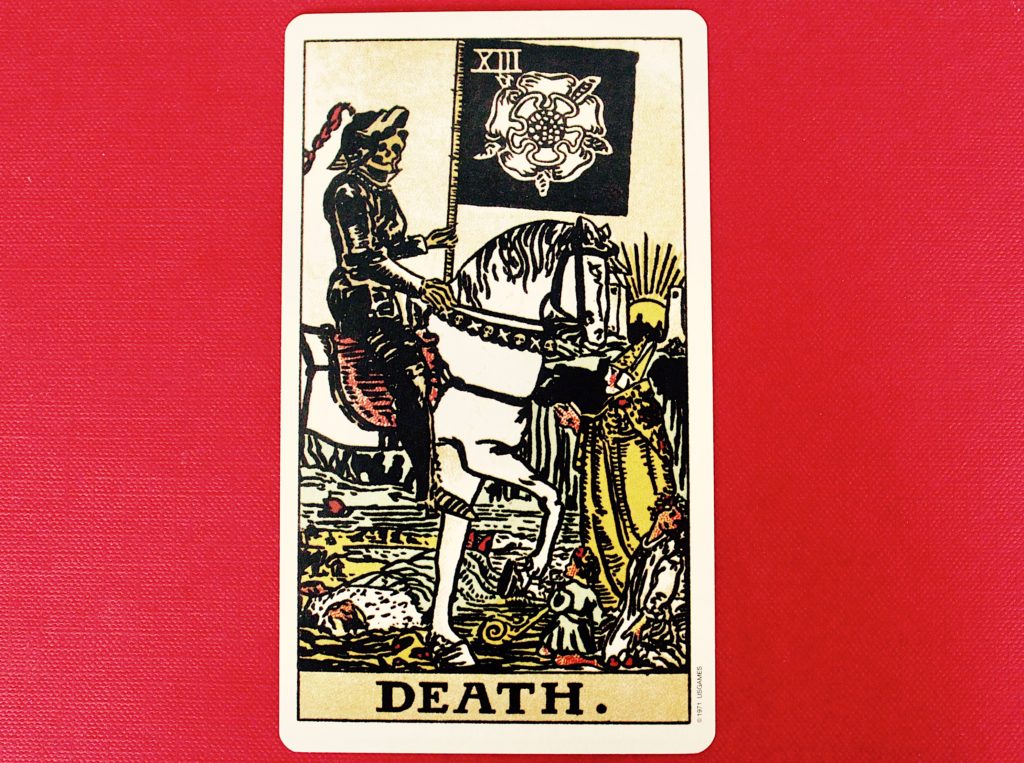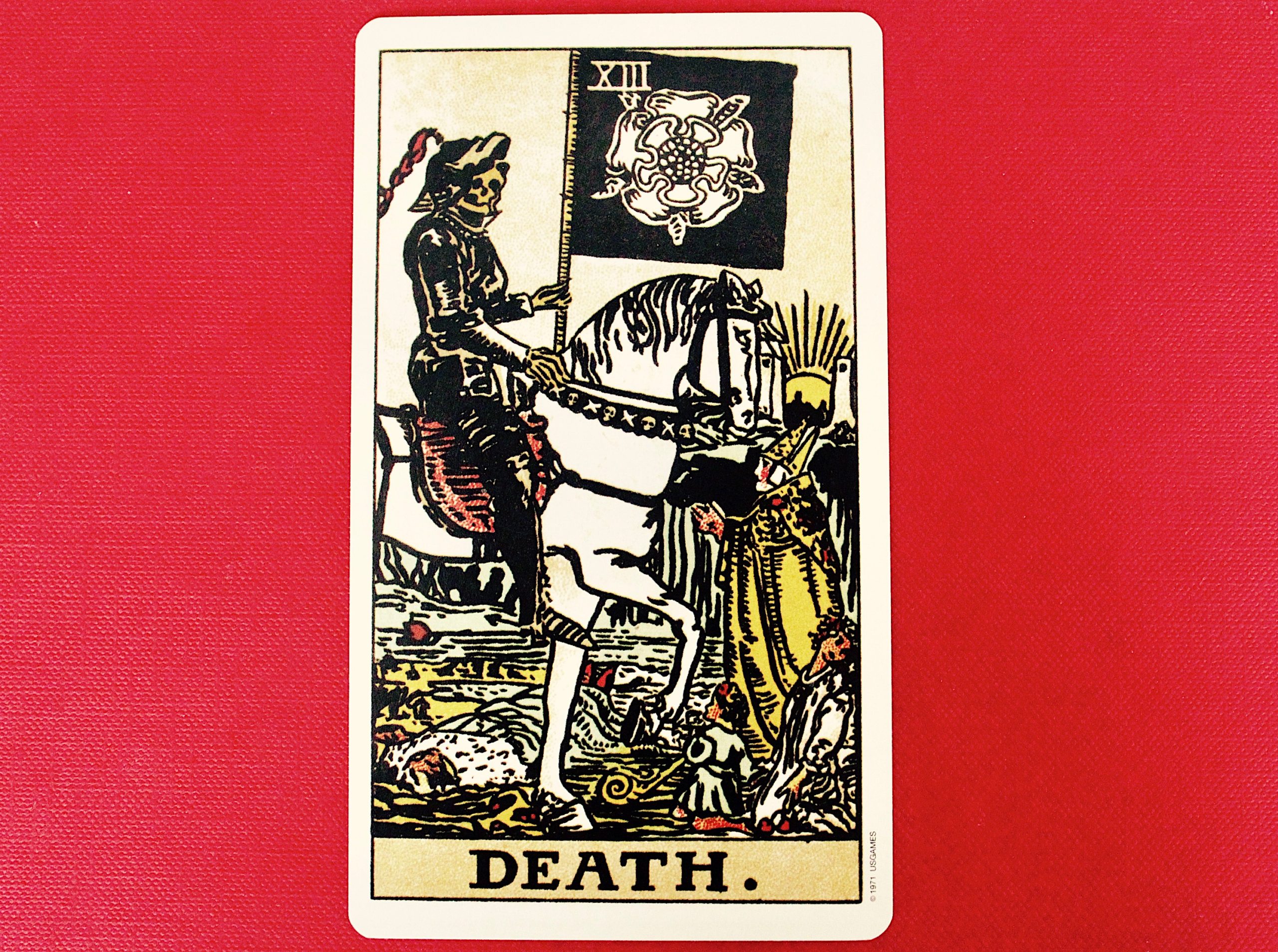By Yaldaz Sadakova

The kitchen is fragrant with the heady smell of fresh coffee. I pour myself a cup and sit at the table.
It’s April 10, 2020, late in the morning.
In just a few hours, it will be April 11 in Bulgaria, which means that by the end of this day here in Canada, I will be 37. I was born in the early hours of April 11.
The past year has been challenging. But there have been some bright spots.
I got my Canadian citizenship. I published my first book, The Wrong Passport, a collection of my evergreen Foreignish personal essays.
I take a sip of my hot black coffee and shuffle my Rider Waite tarot deck. I close my eyes and pull a card, as I do most mornings.
But today as I pull the card I focus on the fact that this is my last day of being 36.
I open my eyes. Death. Ouch. Not my favorite card, I won’t lie, even though the Death card isn’t about literal death—and even though I don’t use the cards as a prediction tool.
Death is a card which symbolizes inevitability, finality, ending. It’s a card which is all about major external events, especially painful events, you have zero control over.
But it’s also a card of hope and transformation: in the background, the sun is rising. There’s a promise of a new beginning and a transformation.
However, for these to occur, certain things need to end. Things that no longer serve their purpose. Things that we find impossible to let go of voluntarily, without any external pressure.
I’ve seen this card many times before. But this morning what catches my eye first are all the people falling sick and dying as Death advances on its white horse.
The plague ethos of the card feels apt in the present moment, amid the coronavirus pandemic we’re going through.
I open Benebell Wen’s Holistic Tarot to reread what she says about Death. One detail in her description jumps out at me—her mention of the bishop in a yellow cloak praying in front of the Death horse.
I look at the card more closely. Oh, yeah, there is indeed a person with his hands folded in prayer in front of the horse. I never paid attention to his hands before.
But now that I see his hands clasped in prayer, the card’s inevitability theme becomes even more obvious to me. The bishop’s prayer looks useless, the way he’s positioned in the path of death.
Does he not realize the inevitability of what he’s facing?
Does he not realize that death is not going to be moved by his prayers?
Does he not realize that death will continue its advance regardless of who stands in its way and regardless of what they do?
Does he not realize that it’s better to focus his limited energy on accepting what is beyond his control and going with it?
It dawns on me that one way of interpreting prayer is to see it as resistance to change. So isn’t it then a waste of energy?
Perhaps it’s better to direct that energy towards accepting what is. Towards leaning into the painful change and seeing what you can learn from it and how you can grow.
When I say prayer, I don’t just mean religious prayer. To me prayer also includes any act of aversion or craving—any time the mind desires or pushes away something in a manner which is fervent and desperate.
Because prayer basically means wishing that it ain’t so.
Prayer, as I understand it, is not about adopting the stance that whatever happens, you’re going to remain calm, and you won’t feel attached to any particular outcome.
Prayer is not about non-attachment.
You could be an atheist, and you could still unconsciously engage in prayer if, like most people, you’re conditioned to resist difficult experiences and crave pleasant ones.
I’m guilty of this myself.
The minute I encounter something I don’t like, my inclination is to push it away and resist, even if it’s beyond my control. My happiness is dependent on things unfolding in a certain way.
All of that is prayer. I’m not religious, but I’m engaging in a prayer of sorts.
This is preventing me from cultivating mental detachment, which is the very purpose of my meditation practice.
Mental detachment is one of the most important life skills, if not the most important one.
You have no control over force majeure events. But you can have control over your own mind if you have trained it to stay present no matter what.
You might argue that prayer and acceptance of change don’t have to be mutually exclusive.
Maybe that’s true for some people. But for me, this approach doesn’t work.
How can I accept inevitable change, go with the flow and stay present no matter what if I’m fervently focused on dodging or undoing that change? ♦
NOW READ:

